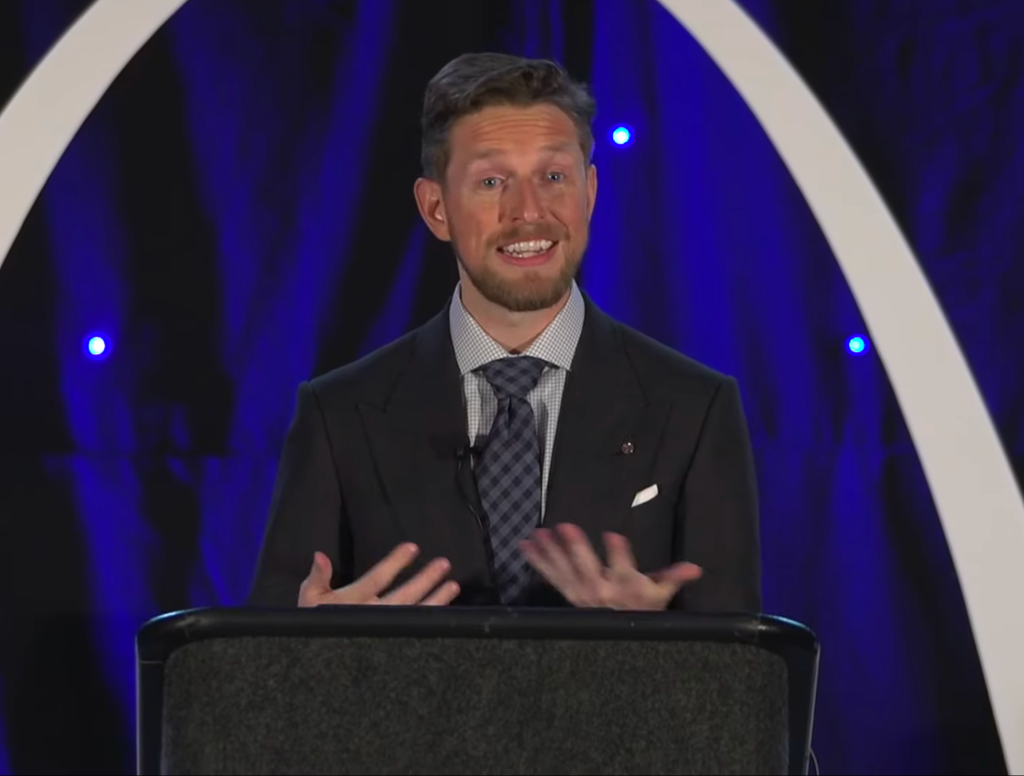Matt Mullenweg recently delivered the 2019 “State of the Word”, in which he outlined accomplishments made in WordPress over the past year, emphasized the importance of the WordPress community, and hinted at the platform’s upcoming roadmap. The keynote was delivered at WordCamp US this past November, which was held for the first time in St. Louis, Missouri. The event included 47 organizers, 122 volunteers, and 90 speakers.
In The Beginning
Mullenweg began the address with the debut of the documentary Open: The Community Code, which focuses on the strong WordPress open-source community. The film primarily explores how and why so many people volunteer their time and contribute to WordPress, which is estimated to power $10 billion in industry profits and one-third of the web. Like WordPress, the documentary itself is open source, allowing the public to share, redistribute and transform the film.
Mullenweg also gave an overview of some highlights of 2019, including two core releases — “Betty Carter” and “Jaco Pastorius,” as well as highlighting the community side of WordPress, noting that in 2019 there will be 141 WordCamps, 17 KidsCamps, 5000+ meetups, and 16 do_action charity hackathons. He encouraged everyone to check out HeroPress, a site that highlights the journeys of WordPress users and contributors. Matt also honored long-time contributor Alex Mills, and other community members we lost this year.
Blocks & The Block Editor
The primary topic of the keynote was centered around blocks and the block editor, which is not surprising given that the Gutenberg plugin officially became part of core about one year ago. Mullenweg noted Gutenberg’s controversial start but explained how Gutenberg came to be:
We came together and decided to make this big change because we wanted to first disrupt ourselves. We wanted to empower more WordPress users to realize our mission of democratizing publishing, and we wanted to make the web a more open and welcoming place.
Mullenweg continued his discussion covering interesting statistics about Gutenberg (such as 1,122 unique contributions in 2019, or 50 million posts created), as well as a number of features on the roadmap for the product (social icons, gradients, a block directory, and more!). Finally, he noted that important pieces of the Gutenberg project, like customization, collaboration, and multilingual support, are ongoing and will be vital in the coming months and years.
Mullenweg concluded his talk by revealing that the entire presentation was designed and built with Gutenberg. The code will be made available on GitHub.
Takeaways
The State of the Word 2019 was an interesting talk filled with a huge amount of information. Here are some pieces I thought were the most relevant to us and our work.
- Gutenberg is here to stay. While there is still some resistance in the community to jump on board and completely discontinue use of the classic editor, it’s clear that Gutenberg is the future of WordPress. I think it has come a long way over the past year to overcome many of the initial usability and accessibility issues.
- “Collaboration,” the third phase of Gutenberg, has the potential to be a game-changer for our clients. I’ve seen how newsroom editors today might have over ten browser tabs open at any given time when trying to publish an article. Collaboration tools and workflows that live within WordPress could simplify the process so that the entire publishing lifecycle can be conducted within one system.
- WordPress is largely built and maintained by the supportive WordPress community. It’s clear that the people behind the code are the main differentiator between the WordPress platform and other content management systems.
What about you? What did you think of the talk, and what do you believe are the best next steps for WordPress and the Gutenberg roadmap? Let us know on Twitter – we’d love to hear your thoughts!
